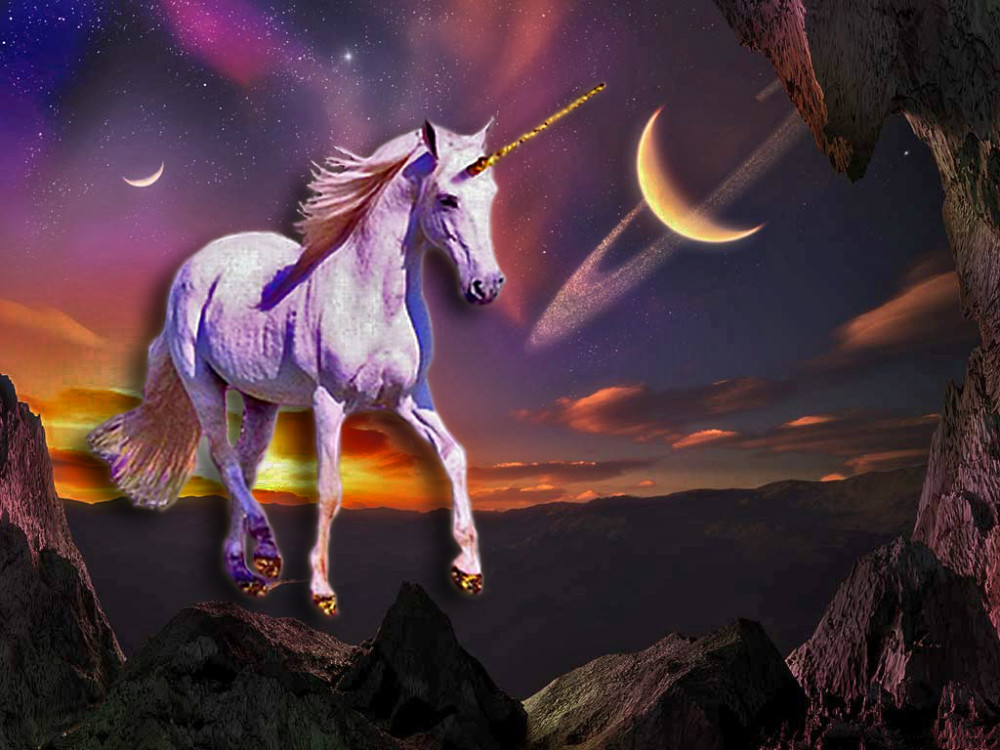By Thomas Lee
San Francisco Chronicle
WWR Article Summary (tl;dr) In Silicon Valley, there was a time when the term “unicorn” was treasured by startups and investors. That may not be the case any longer as some people are beginning to attach negative connotations to the term. Originally used to describe private startups worth billions, these days some are equating the word “unicorn” with over-valued, over-hyped ventures that will never live up to all the hype.
San Francisco Chronicle
There’s a new four-letter expletive in the tech industry, and it’s spelled u-n-i-c-o-r-n.
Not so long ago, companies would die to join the unicorn club — private startups supposedly worth $1 billion or more. The name not only conveyed a sense of exclusivity but also served as a useful marketing tool to woo investors and employees.
In fact, a public relations company last year sent me an email breathlessly announcing that a tech firm had just become “half of a unicorn.” (Which half, they didn’t say.)
Today, fair or not, unicorns mean something entirely different: over-valued, over-hyped, bloated. The symbol of a yet another bubble born from Silicon Valley excess.
And with good reason. Square, once valued at $6 billion, lowered its November IPO price to $9 per share from the original range of $11 to $13, cutting its valuation. Its market capitalization now stands at $4.4 billion. Gilt Groupe, which valued itself at $1 billion three years ago, was sold last week to Hudson’s Bay Co. for $250 million.
Since January 2015, seven unicorns have seen or are in danger of seeing their valuations dramatically fall, according to data from CB Insights research firm.
“Being a unicorn is really an albatross,” famed venture capitalist John Doerr of Kleiner Perkins Caufield & Byers told a tech conference in San Francisco in December.
Being a unicorn can also imply something worse — like fraud or criminal activity. Federal prosecutors are investigating Theranos for misleading investors about its diagnostic technology. Founded by Elizabeth Holmes, investors had valued the medical device startup at $9 billion. Zenefits, once valued at $4.5 billion, is under fire from regulators for not making sure its employees were properly licensed to sell insurance.
Unicorns have particularly attracted the notice of Mary Jo White, the chairwoman of the Securities and Exchange Commission.
“Beyond the hype and the headlines, our collective challenge is to look past the eye-popping valuations and carefully examine the implications of this trend for investors, including employees of these companies, who are typically paid, in part, in stock and options,” White told a conference in March. “These are areas of concern for the SEC and, I hope, an important focus for entrepreneurs, their advisers, as well as investors.”
Companies with a $1 billion or more valuation are still relatively rare: CB Insights estimates a startup has a 1.28 percent chance of hitting that milestone. But ever since Cowboy Ventures founder Aileen Lee first used “unicorn” to describe these startups in 2013, the once-exclusive club has expanded to over 150 companies around the world.
In other words, unicorns have lost a good deal of what made them special in the first place.
“Unicorns are supposed to be rare and seldom seen,” MuleSoft CEO Greg Schott told me. “When you have hundreds of unicorns, they are by definition not really unicorns anymore.”
In an interview, Lee said she believes her original analysis behind coining the phrase remains a useful way to think about companies with such enormous valuations. But the term had unexpectedly morphed into a marketing buzz word, much to her dismay. She recalls a company asking her to organize a dinner for “The Unicorn Club.”
“That was pretty crass,” Lee said.
Plus unicorns are not equal. The top 10 unicorns, including Uber, Snapchat and Airbnb, account for nearly half of the total valuation of all unicorns combined, CB Insights said. So it doesn’t seem particularly useful to lump MuleSoft, valued at $1.5 billion, with companies like Uber, worth $50 billion.
Schott said he never liked the unicorn label because it focuses people’s attention on a fluctuating number rather the actual business. MuleSoft generated more than $100 million in revenue last year, a 92 percent jump from 2014. Schott wants MuleSoft to hit $1 billion in revenue in the near future, so he doesn’t want any unnecessary distractions.
“People say congratulations, but to me, a point-in-time valuation is nothing to be congratulated about,” Schott said. “You should be congratulated on building a great company. I think it’s not helpful. If companies are benchmarking themselves against ‘are we or are we not a unicorn,’ then they are barking up the wrong tree.”
Schott has every reason to keep MuleSoft employees and investors focused on the long term. The demand for tech IPOs has all but dried up, which means MuleSoft, which makes enterprise software, will probably not go public for a while now.
Unicorns imply that people will make money, and Schott needs to keep employees happy. Last year, the company agreed to buy back some stock from employees.
In any case, unicorns have become a horribly homogenous (and passé) way to describe companies. We really need to start organizing these startups into new categories, each named after a mythical being.
May I suggest pegasuses, centaurs and hobbits?














































































































































































































































































































































































